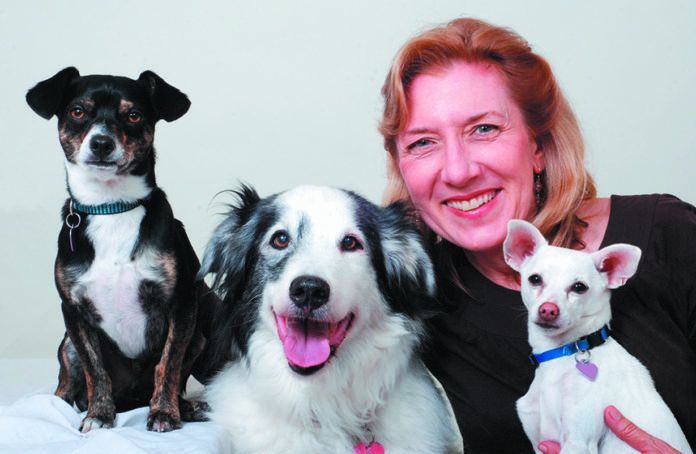“Foster care for dogs in a shelter is a win-win-win,” says Emily McCobb, DVM, Director of Shelter and Community Medicine at the Tufts Cummings School of Veterinary Medicine. It helps the shelter because it frees up space for another animal without having to resort to euthanasia. It also helps a shelter elicit more information about a dog’s behavior in a home environment so that it can make the right match with a permanent adopter. The shelter learns, for instance, whether the dog can get on with children or other pets.
Foster care helps the dog because it offers a respite from the stress of living in an institution. A dog gets more individual attention in someone’s home and isn’t subject to all the noise and confinement of shelter life.
Finally, fostering a dog enhances the life of the foster family. “It’s a nice way to have an interaction with an animal without signing on for a long-term commitment,” Dr. McCobb says. “Maybe you’re between dogs — a beloved canine pet has died — and you’re not ready to choose a new one as a permanent family member but would enjoy the canine comfort a visitor would provide.” Foster dogs deemed capable of living with other dogs can also provide temporary companionship for a pet you may already have without your having to sign on for taking care of two dogs for many years.
A stranger among us
A shelter will tell you as much about a dog as they know before you take one home to foster, but frequently, “a shelter dog has an unknown history,” Dr. McCobb says. “A newly arrived animal might be anxious or aggressive,” perhaps because of fear that comes from a lack of exposure to all the goings-on in a home.
It’s generally not something most dog lovers can’t handle, although if you already have a dog (and, if you’re reading this newsletter we assume you do), you’ll want to insure that you have enough space in your home so that the two dogs can stay in separate areas if they want without anxiety about needing to interact. Some people “crate” a foster dog in a room that they then make off limits to the pet dog.
We don’t say this to alarm you. Many foster dogs do wonderfully with a household’s pet dog right from the get-go. And a shelter will do as much pre-screening as possible to make sure a dog it is lending out will be okay with other dogs. It might even encourage a visit from the dog in your household to the shelter to see how the two get on before you bring home the potential visitor. It will work to ascertain how well a shelter dog will get along with children and pet cats, too.
But personality traits may come out in someone’s home that are not apparent in a shelter, and those who want to foster need to remain aware of that possibility. Indeed, if they take in a dog on a temporary basis, they will probably be asked by the shelter to report on observations they make about behavior and general temperament.
Foster fail
If you’re considering taking in a foster dog for a while, do not underestimate the emotional pull you are likely to experience. Fostering a dog can be an incredibly rewarding experience in and of itself — you are literally saving either that dog or another from death because shelters don’t have enough space for all dogs without permanent homes. And as a dog lover, you are likely to fall in love with the dog, whatever his personality.
For that reason, it can be hard to see a dog leave your home for his forever home — which is why there are so many “foster failures,” as they are known by shelter organizations. That is, many people who start out with the idea that they are going to foster a dog for the short term end up adopting the dog.
There’s nothing wrong with that. In fact, it happens not all that infrequently. There’s also fostering with the intention to adopt. Many shelters allow a household to take home a dog on a trial basis and see if it works out with the people and other animals in your home.
Thinking that fostering a homeless dog might be for you? Contact your local shelter. Some work entirely through foster care. They don’t have a brick-and-mortar facility, so all of their dogs are looked after by people in their own homes.





